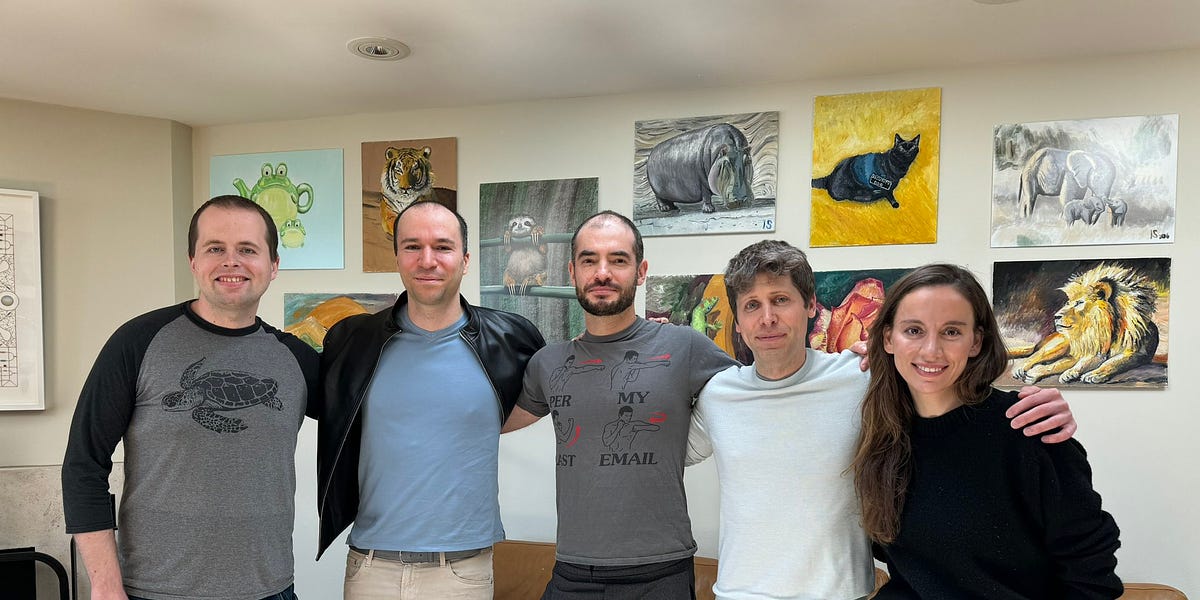I'm Bearish OpenAI

🌈 Abstract
The article discusses the recent developments at OpenAI, including the unveiling of their latest model GPT-4o, and the potential deal to integrate ChatGPT's technology into the iPhone. However, the author expresses bearishness on OpenAI's long-term prospects, arguing that they will ultimately lose to tech giants like Apple, Google, and Meta in both software and hardware. The key reasons cited are:
- The immense resources and investments being poured into AI by Big Tech companies, making it extremely expensive to do AI well.
- The constant shortage of adequate chips, which will be a constant problem in the future as the demand for compute power continues to grow.
- The dominance of Big Tech companies in key hardware platforms like phones, laptops, and AR/VR headsets, where they are building their own AI models.
- The brain drain and pivot to consumer-facing products at OpenAI, which the author sees as a sign of lost confidence in their ability to achieve AGI.
🙋 Q&A
[01] OpenAI's Prospects
1. What are the key reasons the author is bearish on OpenAI's long-term prospects?
- The immense resources and investments being poured into AI by Big Tech companies like Meta, Microsoft, and Google, making it extremely expensive to do AI well.
- The constant shortage of adequate chips, which will be a constant problem in the future as the demand for compute power continues to grow.
- The dominance of Big Tech companies in key hardware platforms like phones, laptops, and AR/VR headsets, where they are building their own AI models.
- The brain drain and pivot to consumer-facing products at OpenAI, which the author sees as a sign of lost confidence in their ability to achieve AGI.
2. Why does the author believe OpenAI's technological edge will not overcome their hardware limitations?
- The author argues that the technological edge of OpenAI is already decreasing, and with the amount of money and talent that the Big Tech companies have, as well as the brain drain happening at OpenAI, there's no reason to expect that gap to expand in the coming years.
- The author also emphasizes the importance of convenience, arguing that if the iPhone has native AI capabilities anywhere close to OpenAI, people are unlikely to seek out OpenAI's products.
3. What does the author see as OpenAI's only hope, and why is the author skeptical of their ability to achieve it?
- The author states that OpenAI's only hope is to be the first to achieve AGI (Artificial General Intelligence).
- However, the author is skeptical of their ability to achieve AGI, citing the brain drain, the pivot to consumer-facing products, and the possibility that the scaling laws they rely on may be "bullshit" and that they need a new research breakthrough to achieve AGI.
[02] Chip Shortage and Demand
1. How does the author compare the chip shortage to the oil industry? The author draws an analogy between the chip shortage and the oil industry, arguing that just as there is a lot of oil and we keep getting better at extracting more, the demand for chips also keeps growing, similar to the steady increase in oil prices. The author expects something similar to happen with chips, where even if capitalism drives the cost of compute down, it will be nullified by the hunt for profits and the scaling laws driving the demand for compute up.
2. What are the implications of the chip shortage and growing demand for compute power? The author argues that the chip shortage and growing demand for compute power will be a constant problem in the future, as companies and nations will have an incentive to stockpile as many chips as possible to integrate AI into their products and build more powerful models. This could lead to a scenario where chip supply is unable to meet demand, similar to the oil industry.
[03] Big Tech's AI Capabilities
1. What are the AI capabilities of the major tech companies mentioned in the article?
- Apple is working on their own on-device large language model (LLM).
- Microsoft, OpenAI's biggest backer, is working on their own model called MAI-1.
- Google is already close to OpenAI in capabilities and is putting their models into their phones.
- Meta is the creator of the most powerful open-source model and has multimodal AI capabilities in their smart glasses.
2. How does the author view the potential ChatGPT deal between OpenAI and Apple? The author believes the ChatGPT deal is a stop-gap measure for Apple, and that it is much more likely that OpenAI will have to pay Apple for the privilege of being on the iPhone, as Apple has no economic incentive to use OpenAI's technology over their own.